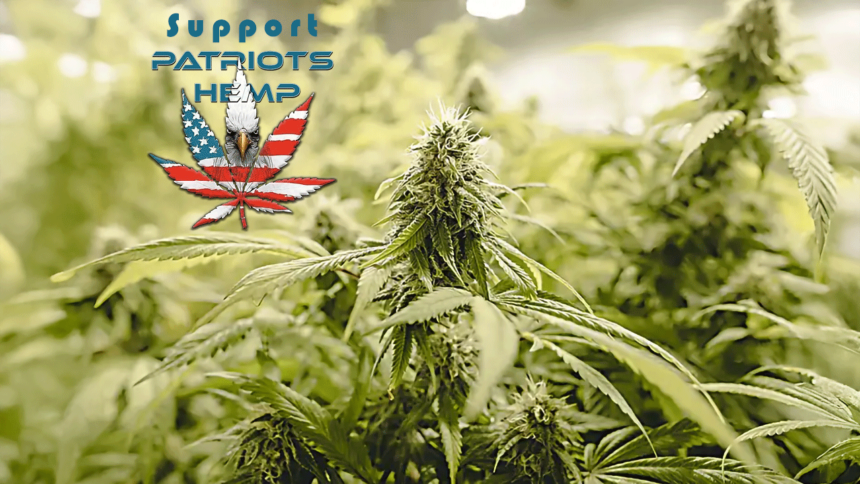Underscoring an anecdotal observation common among cannabis consumers, a group of researchers in Canada have released a new study indicating that marijuana can make music more enjoyable, concluding that “the impact of cannabis on the auditory experience may be overall enhanced” compared to sober listening.
Authors, from Toronto Metropolitan University, wrote in a preprint that the research “highlights the profound yet idiosyncratic effects of cannabis on auditory experiences among experienced recreational cannabis users.”
“This study provides a framework to understand the complex interactions between cannabis, hearing, and musical experience,” the report says.
Participants were recruited through the university as well via flyers at 38 marijuana retailers in and around Toronto. A total of 104 people completed an online questionnaire, 15 of which were interviewed further on hourlong individual Zoom calls.
According to their self-reported experiences, participants showed “significantly higher levels of state music absorption while high…compared to sober.”
“Participants indicated that heightened emotional sensitivity had a profound impact on their auditory experience while high.”
Of survey respondents, 50 percent reported better hearing sensitivity after using cannabis compared to when sober, while 18 percent reported worse hearing sensitivity and 32 percent reported no difference at all. A separate question found that 60 percent of participants said they felt cannabis affected their hearing generally.
Listening to music was also the most popularly selected activity that people said they did while high, at 45 percent, compared to videos (38 percent), podcasts (9 percent), silence (4 percent), radio segments (2 percent) or other activities (2 percent).
Researchers found that there was no significant difference, however, in terms of what genres of music people listen to while high compared to sober.
Much of the 36-page paper consists of qualitative responses and excerpts of interviews with the 15 participants, who “reported changes to cognitive processing, noting altered attentiveness, absorption, interpretation of lyrics, memory, and critical analysis,” authors wrote.
“When I’m not high, I just don’t pay enough attention to the music, it’s like…background noise,” one participant said. “Compared to when I am high…it’s like that’s the only thing I am focused on.”
While participants “commonly” reported giving greater attention to auditory stimuli while high, some said that marijuana “occasionally caused difficulties in allocation attention, particularly in aurally overstimulating environments.”
Audio perception was also altered, with participants “frequently” reporting variations such as “enhanced hearing sensitivity, new sound perspectives, and changes in audiovisual perception, rhythm, and timing.”
“They described increased awareness and sensitivity of sounds and volumes,” authors wrote, “even when the set volume of the music remained unchanged.”
Participants also reported “feelings of absorption or immersion in the music that was intensified while high,” the study says.
“If I’m sober, I don’t just listen to music and not do anything else,” one said. “But when I’m high, I can definitely lie down and listen to music for awhile.”
“Participants have also reported listening to music with a different approach or openness that is not typical of their sober listening habits.”
Others said that familiar songs “often sounded new or different” or that they understood or interpreted lyrics better or differently compared to when they were sober:
“I find when I’m stoned, I tend to focus a little bit more on the meaning behind the lyrics. I’ve accidentally discovered some of the songs that I really like, and I Google them later and I’m like—that’s actually about a really serious subject that I hadn’t noticed before. I listen and dissect the lyrics a little bit more [when high] than I normally would.”
Individuals also said cannabis and music together heightened memory recall, bringing to mind past memories that could be both positive or negative. One reported nostalgic memories, while another recalled past events and felt “shameful.”
Yet others said they felt more able to make associations or connections when high that would otherwise be less apparent.
“I’m able to connect different things that I wouldn’t normally connect [when sober]. For music that would be scales, rhythm patterns, harmonies and how these coaligned together,” one participant said. “I found the ability to critically think through cannabis and whether this was an A major scale? Or what kind of rhythms were they playing.”
Generally the reflections fell into four main themes, authors wrote: “(1) Altered Cognitive Processes and Reinterpretations, (2) Auditory Perceptual Effects from New Sensations to Sensory Overload, (3) Emotional Openness, Sensitivity, and Regulation, and (4) Embodiment, Immersion, and Out-of-Body Dissociation.”
“These themes collectively highlighted a general enhancement and appreciation for music,” they explained, “as well as increased musical reward, such as enhanced rhythmic perception and the inclination to physically respond to rhythms.”
“Many participants acknowledged feeling the bass and the beat of songs more deeply, supporting embodiment and their desire to dance.”
There was, however, “considerable individual variability in cannabis experiences,” the team added. “For instance, some participants may have experienced sensory overload, while others reported clarity of auditory stream segments while high.”
The new report says its findings align with those going back decades, citing prior research as far back as 1971. But they said their work represented “the first mixed-methods retrospective examination of the influence of cannabis on hearing and music” and provides “novel insights that highlight the numerous and significant impacts that cannabis imparts on the auditory experiences of recreational cannabis users.”
Authors said the apparent enhancement of audio experiences through cannabis “warrants further exploration through experimental studies.”
In other examples of science digging into generations-old marijuana questions, a recent federally funded study identified exactly what happens in the brain after using marijuana that appears to cause the munchies.
Researchers at Washington State University (WSU) published the findings in the journal Scientific Reports, revealing how cannabis activates a specific cluster of neurons in the hypothalamus region of the brain that stimulates appetite.
The hunger-inducing effects of marijuana have been well-understood by consumers, but now the results of the new animal research offer insights that could help lead to the development of targeted therapeutics for people with conditions such as anorexia and obesity.
As for music, a separate study published a few years ago explored the intersection of music and psilocybin-assisted therapy and undermined conventional wisdom that classical music is somehow more effective in that setting.
“Western classical music has long been assumed to be the standard in psychedelic therapy,” researchers wrote in the study, published in the American Chemical Society (ACS) journal Pharmacology and Translational Science. “The present data challenge this notion that Western classical music, or for that matter any specific genre of music, is an intrinsically superior form of music to support psychedelic therapy, at least for all people at all times.”
Analyzing a 10-person trial involving the use of psilocybin therapy to help people quit smoking tobacco, the Johns Hopkins team compared sessions featuring classical music with those involving overtone-based music, featuring instruments such as gongs, Tibetan singing bowls or the didgeridoo, among others.
“Although we found no significant differences between the two musical genres studied here,” the team wrote, “several trends suggested that the overtone-based playlist resulted in somewhat better outcomes and was preferred by a larger portion of this small sample of participants.”
As one of the study’s author wrote on social media: “Apparently classical music is not such a sacred cow for psychedelic therapy.”
Psilocybin Helps First Responders Reduce Stress And Curb Occupational Burnout, Study Shows





















